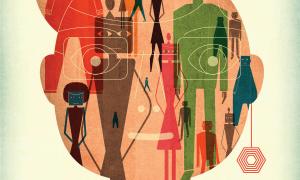1,947 Results
Women’s Equality Day
Despite the diverse coalition of activists who fought for its passage, the 19th Amendment didn’t bring voting equality to all women. Women’s Equality Day offers an opportunity to correct the record and explore how a whitewashed version of history is sustained and supported to this day. These resources can help you encourage students to think critically about this important anniversary, celebrate steps toward justice and recognize the injustices we still need to fight.
- Perspectives on Women’s Equality Day
- Ain’t I a Woman?
Understanding Jim Crow
Teaching the 2020 Election: What Will You Do on Wednesday?

Teach the Truth About American Slavery
August 23 is International Day for the Remembrance of the Slave Trade and its Abolition. With blatant, nationwide attempts to keep truth-telling out of schools, it’s especially critical to teach the whole truth about American slavery. Use our Teaching Hard History framework, its accompanying online archives and databases, and this film to help you and your students dig deeper into lessons about the slave trade and its lasting effects, as well as an often-forgotten part of our nation’s history: Indigenous enslavement.
- Teaching Hard History: American Slavery |Key Concepts Videos
- Teaching Hard History: American Slavery
- Teaching Hard History Online Archives and Databases
Walking in Their Shoes: Using #BlackLivesMatter to Teach the Civil Rights Movement
Expanding Democracy Through Intersecting Movements
In the continuing fight for justice and the expansion of democracy, understanding intersecting movements to end oppression is imperative and inspiring. Those at the intersections of geography, gender, poverty and race, as LFJ Director Jalaya Lyles Dunn explains, “will determine the fate of our democracy,” and have often been the agents of change, as witnessed by the connections between the past and the present highlighted in the Southern Poverty Law Center’s Civil Rights Memorial Center.
- Expanding Democracy Through Intersecting Movements
- Expanding Democracy
- James Baldwin
